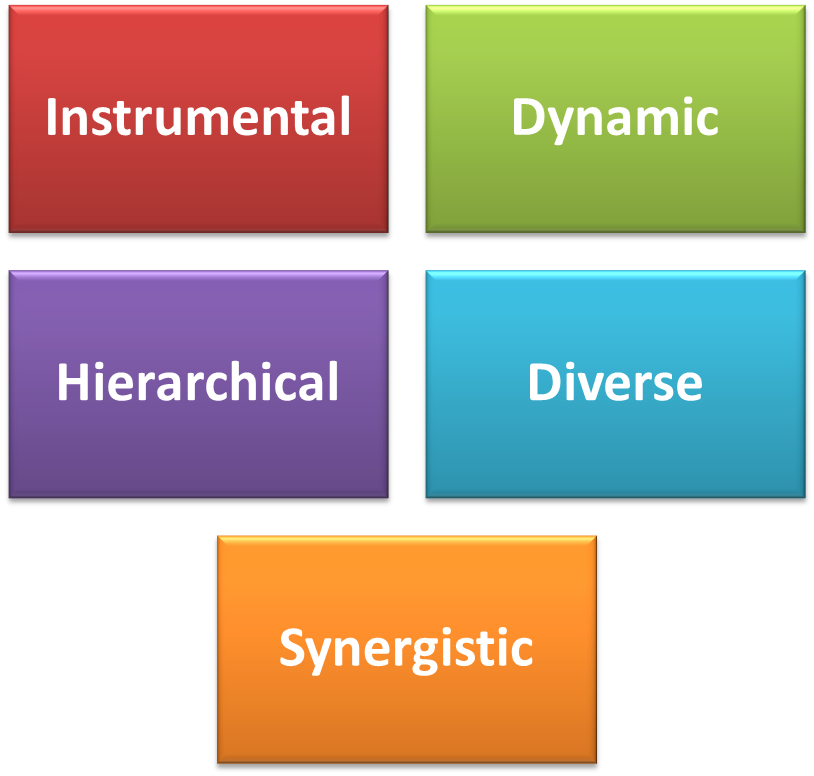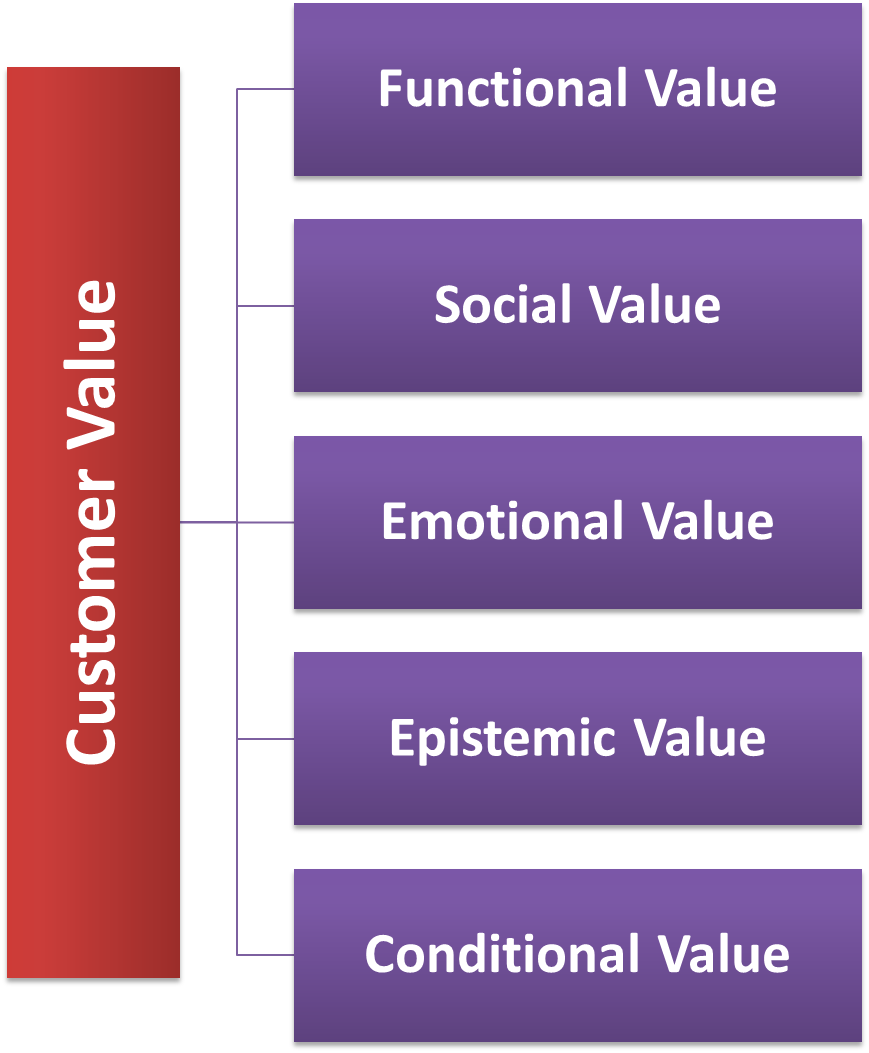Before selecting a brand, the customers examine the products and brands with regard to their attributes, prices and suppliers. Their decision for selecting brands rely mainly on the maximization of value. The products which deliver higher value when compared to other products are selected by the customers. The companies offering “highest customer perceived value” will be selected by the customers for buying the products. The “highest customer perceived value” is the difference between total benefits and total costs of a product compared to those of the competitors.
Customer value = Total benefits − Total costs
Building Customer Value
Customer value can be build by any organization through different sources or activities. They are listed below,
- Activities which makes product unique.
- Activities which reduces the costs.
- Activities which render the service quickly to customers.
Characteristics of Customer Value

Customer values are distinctive is nature as they have distinguishing characteristics. Following are the characteristics of customer value,
1. Instrumental
The value of the product is an instrumental value with the help of which the customers attains satisfaction. These values help in satisfying the needs and wants of the customers.
2. Dynamic
Market values are dynamic in nature as they keep on changing over a period of time.
3. Hierarchical
A product should fulfill the main purpose of its existence. If it does not give the universal value, then the other values will not be considered by the customers. If these values are not present in the product, then the customers will not take into account the values of next levels. Thus, value has hierarchical nature.
4. Diverse
A homogeneous market segment has customers whose value expectations match at the universal levels. Whereas, in a fragmented and heterogeneous market, the customer’s expectations do not match with the universal values and makes other values complex and diverse.
5. Synergistic
The existence of one value does not destroy the other value, as one value improves the utility of other value. The performance value, service value and price value are at an optimum level when trade off does not exits between them.
Types of Customer Value

The following are the various types of customer value,
1. Functional Value
The functional value of customer’s choice is the comprehended functional, useful or physical utility derived by selecting the product features. It is mainly related with the economic utility theory which is expressed with respect to rational economic reason. The essence of this value is the set of features like reliability, durability and prices.
2. Social Value
The social value of a customer’s choice is the utility derived from the product due to the relations between one or more specific social groups and customer choice. The products associated with social values include highly visible products such as food, bicycles and services which are socially shared like gifts and products used for entertaining.
3. Emotional Value
The emotional value of a customer’s choice is the comprehended utility derived from the ability of the product to cultivate some sentiments or memories while using a product. A customer considers the emotional value when he has some specific feelings associated with product or sustain those feelings. The products and services are related with its emotional value frequently.
4. Epistemic Value
Epistemic value of customer’s choice is the utility derived from the ability of the product to stimulate a strong desire, provide a freshness and fulfill the desire for knowledge. The epistemic value is offered by the new purchaser and consumption expenses.
5. Conditional Value
Conditional value of customer’s choice is the utility derived by selecting a product as an outcome of any particular situation faced by the customer.
Significance of Customer Value
The following points helps us to know the importance of customer values :
- An effective understanding of customer value helps the firms to integrate it with the marketing mix. This in turn helps the firm to deliver a superior value to its target markets and satisfies the existing customers and add new customers to the firm.
- This perceived superior value enhances the organizational growth by increasing the sales, profits, return on investment, number of products and overall size of operations.
- Superior perceived customer value also helps in developing the business repeatedly as the customers become more loyal to these firms when compared to other firms.
- The growth and loyal customers help the firms to target and retain effective and talented employees who enhance productivity and result in cost advantage.
- An effective customer value proposition helps the firms to connect its internal processes and enhance the consequences with its customers.
